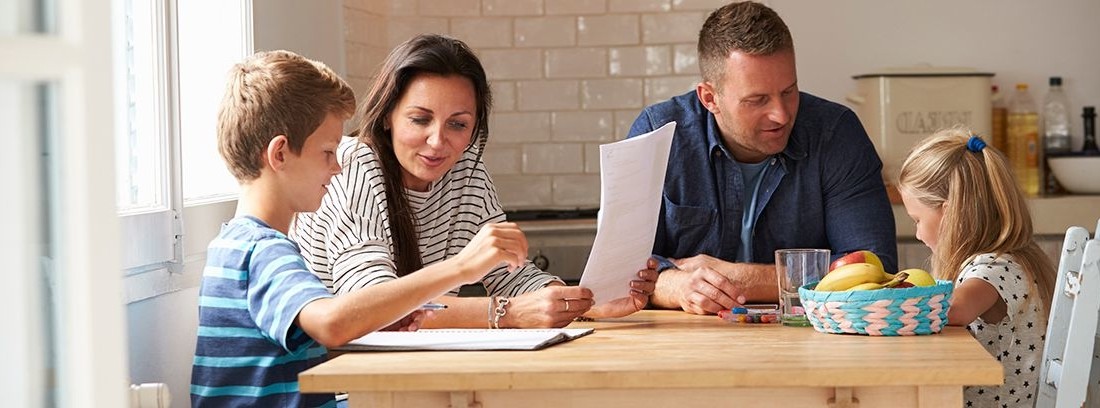Co-parenting: another way to have children

From the development of science, assisted reproduction appeared, for cases in which adoption or foster care were not a possibility. Surrogacy also appeared (or as it is colloquially called, surrogacy), which is legal with more or less restrictions in some countries but which, in any case, is not exempt from ethical questions and social controversy. Something more was needed. And the co-parenting.
What do we understand by co-parenting?
Co-parenting it means that two people who have never been a couple come together for the sole purpose of having and raising a child together. The future parents agree in advance on the role that each will have in the baby's upbringing. What is innovative about this reproductive model is that for the first time the romantic relationship is separated from conception and upbringing.
Who?
Anyone can be a co-parent, regardless of sexual orientation, marital status, social status, etc. However, some of the most common cases are:
- Heterosexual couples in which the male has fertility problems.
- Single people or couples who cannot access or do not agree with other methods (assisted reproduction, surrogacy, adoption, etc.) for economic, medical, ethical, time, etc. reasons.
- Single people who want to be a father / mother and are reaching their fertile age or do not find / do not want a partner or do not have time.
- Women who do not want to be a mother alone.
- Polyamorous relationships.
- Gay couples who want to have a child and are looking for a third to make it possible.
Although it is true that there is only one sperm donor and one female parent, co-parenting can involve more than two people, as in the last of the previous cases.
How?
Non-anonymous sperm donation is not allowed in many countries. In Spain, for example, one can only come from the sperm of the husband (or "official" partner) or from a. Co-parenting allows the two future parents to define their relationships with the future child. This includes from simply meeting the child after birth without further family commitments, to joint custody for all intents and purposes. Intended parents can meet in advance or meet through an internet co-parenting platform. Technology and social networks have been progressively expanding their usefulness. In the same way that it is currently common to start a relationship or make a purchase through the network, there is also the option of looking for a partner to be a father / mother. Depending on the legal status of the country or the parents' preference, there are basically three routes to conception:
- Artificial insemination: It is done in an approved assisted reproduction center under medical supervision.
- Home insemination: From a home insemination kit (basically introducing the sperm of the future father with a syringe during the woman's ovulation period). It is a natural, inexpensive alternative that is not governed by a legal framework, although the success rate is low, around 15%.
- Sexual relationship
How do you make co-parenting work?
It is important to note that a child has the same chances of being happy and mentally healthy whether he is raised in a traditional or co-parenting family model. The most important thing is not whether or not the parents have a romantic relationship, but rather that the criteria are created for the child to evolve favorably. The better defined the rights and responsibilities before birth, the more problems later will be reduced. Some recommendations for co-parents:
- Become a team, where the well-being of the child is always prioritized, always giving them affection, security, predictability in their day-to-day life and meeting their needs.
- Enhance communication, not only keeping up to date with what is happening in the day to day, but also spending time together with the child (at parties, special days, etc.) and even without him (promoting your friendship).
- Try to reach agreements so that the educational guidelines are as homogeneous as possible in one house and another.
- Organize and record expenses and visits so that there are no mistakes or misunderstandings.
- Work on empathy and be flexible.
- If problems appear, do not postpone them, try to solve them as soon as possible. And if you can't, seek help from a family psychotherapist or parenting coordinator. The latter is a figure that is being implemented recently in our country to solve specific problems in parenting, helping to resolve disputes, offering psychoeducation regarding the needs of children and even making decisions based on court decisions.
-
- What is innovative about this reproductive model is that for the first time the romantic relationship is separated from conception and upbringing.
- While it is true that there is only one sperm donor and one female parent, co-parenting can involve more than two people.
- Always prioritize the well-being of the child, talk a lot, organize, do not put off problems and work on empathy and flexibility are tips that the specialists so that co-parenting works.
Specialist in Clinical Psychology Advance Medical Consulting Psychologist
(Updated at Apr 15 / 2024)